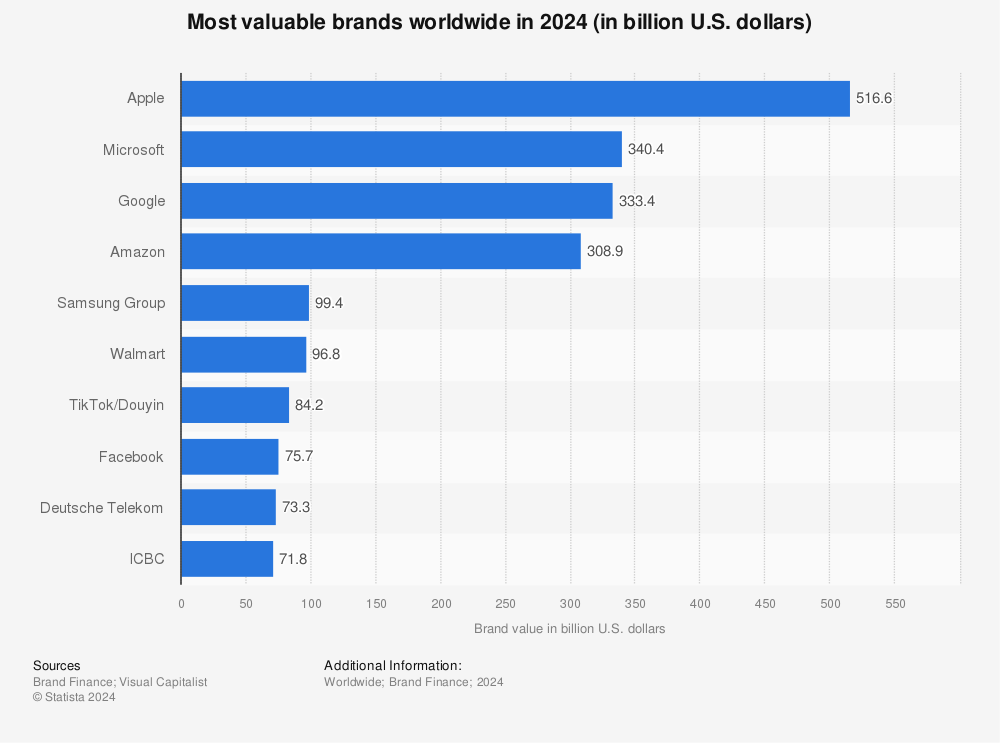Brand value
Brand value, not to be mistaken with brand equity, is a term used in the marketing industry to describe the value of brands based on the implication that the owner of a well-known brand name can generate more money than from products with a less well known name, brand valuation is the estimation of a brands total value.
This is achieved by following the International Organization for Standardization’s ISO 10668 standard which maps out the appropriate process of valuing brands by adhering to six key requirements: transparency, validity, reliability, sufficiency, objectivity and financial, behavioral and legal parameters. A brand is an intangible asset (name, term, design, symbol or any other feature) identifies one seller’s product from another and is often a corporation’s most valued asset.
Strong brands enhance business performance primarily through their influence on three key stakeholder groups: (current and prospective) customers, employees and investors. They influence customer choice and create loyalty; attract, retain, and motivate talent; and lower the cost of financing. For example, Google is one of the most recognized brands in the world. In the United States alone the brand’s value amounted to approximately 303.2 billion U.S. dollars in 2020.
Ultimately, brands help shape perceptions and, therefore, purchasing behavior, making products and service less substitutable. Brands, therefore, create economic value by generating higher returns and growth, and by mitigating risk.


